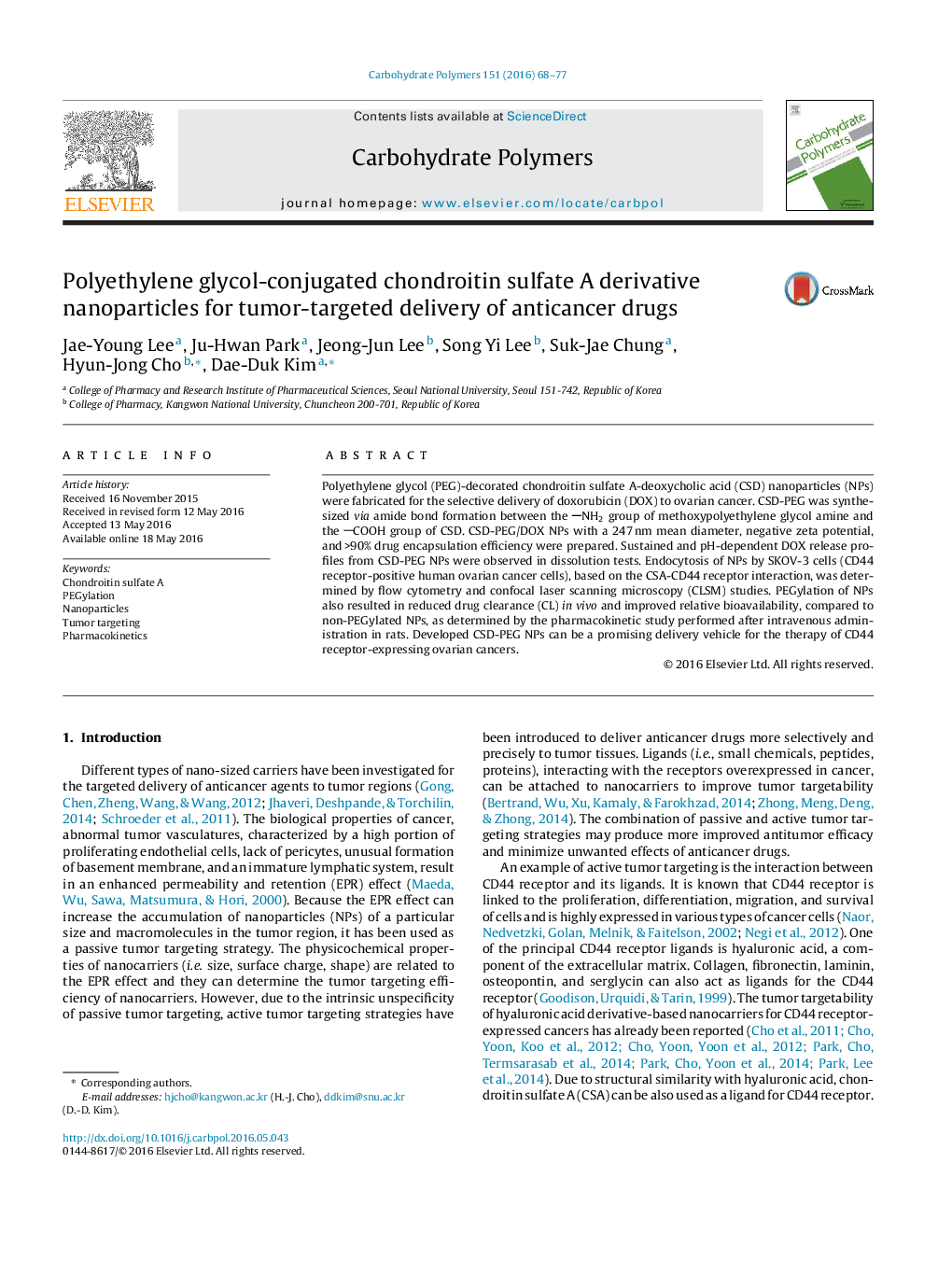| Article ID | Journal | Published Year | Pages | File Type |
|---|---|---|---|---|
| 1382973 | Carbohydrate Polymers | 2016 | 10 Pages |
•PEG-modified chondroitin sulfate A-deoxycholic acid (CSD) conjugate was synthesized.•Doxorubicin (DOX)-loaded CSD-PEG nanoparticles (NPs) were prepared and characterized.•CD44 receptor-mediated endocytosis of NPs was identified in ovarian cancer cells.•PEGylation of NPs provided a decreased clearance of drug after intravenous injection.
Polyethylene glycol (PEG)-decorated chondroitin sulfate A-deoxycholic acid (CSD) nanoparticles (NPs) were fabricated for the selective delivery of doxorubicin (DOX) to ovarian cancer. CSD-PEG was synthesized via amide bond formation between the NH2 group of methoxypolyethylene glycol amine and the COOH group of CSD. CSD-PEG/DOX NPs with a 247 nm mean diameter, negative zeta potential, and >90% drug encapsulation efficiency were prepared. Sustained and pH-dependent DOX release profiles from CSD-PEG NPs were observed in dissolution tests. Endocytosis of NPs by SKOV-3 cells (CD44 receptor-positive human ovarian cancer cells), based on the CSA-CD44 receptor interaction, was determined by flow cytometry and confocal laser scanning microscopy (CLSM) studies. PEGylation of NPs also resulted in reduced drug clearance (CL) in vivo and improved relative bioavailability, compared to non-PEGylated NPs, as determined by the pharmacokinetic study performed after intravenous administration in rats. Developed CSD-PEG NPs can be a promising delivery vehicle for the therapy of CD44 receptor-expressing ovarian cancers.
